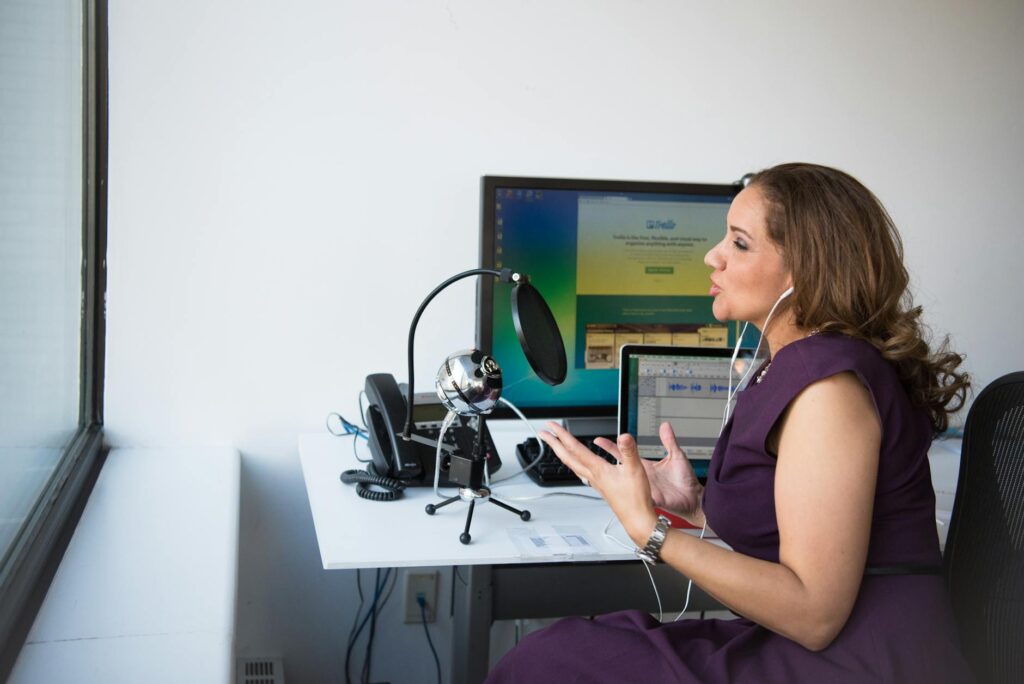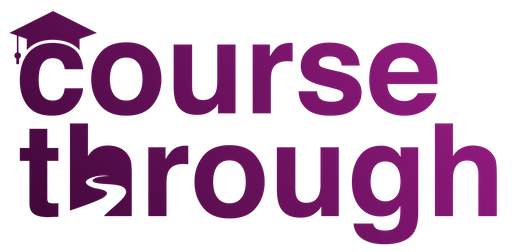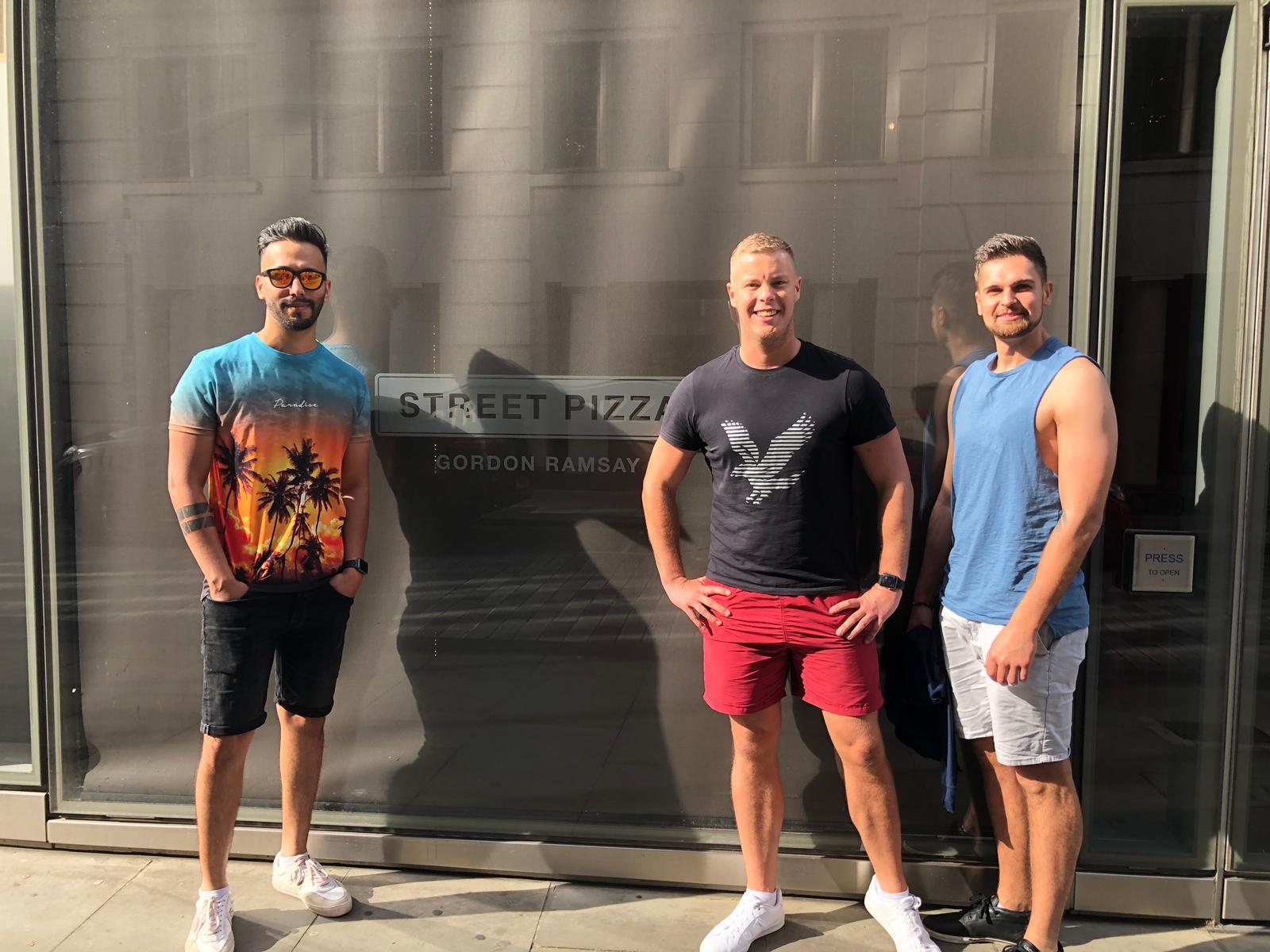At Course Through we are delighted to address you on the transformative potential of podcasts in the realm of education. In our continuous pursuit of academic excellence, it is imperative that we embrace innovative methods to enhance our learning. Podcasts, with their dynamic and accessible format, offer an extraordinary avenue for both students and educators.
Harnessing the Power of Podcasts for Learning
Convenience and Flexibility
Podcasts provide an unparalleled level of convenience, allowing students to engage with educational content at their own pace. Whether commuting, exercising, or relaxing at home, podcasts offer a flexible learning experience that can seamlessly fit into any schedule. Unlike traditional classroom settings, which require fixed timings and physical presence, podcasts can be consumed on-demand, making learning a more individualized and adaptable process.
For students juggling multiple responsibilities, such as part-time jobs, family commitments, or extracurricular activities, podcasts serve as an ideal solution to continue their education without compromising on other aspects of their lives. They can easily fit in a podcast episode during their morning commute or while performing routine tasks, thus maximizing their learning time efficiently.
Diverse Content
The vast array of podcast topics ensures that learners can find content that aligns with their interests and academic needs. From history and science to literature and technology, podcasts cover an extensive range of subjects, offering something for everyone. This diversity of content means that students can delve into niche areas of interest that may not be covered in their standard curriculum, thus broadening their knowledge base and fostering a love for lifelong learning.
For example, a student with a keen interest in environmental science can explore podcasts like “Sustainababble” or “The Energy Transition Show,” which provide in-depth discussions on sustainability, renewable energy, and climate change. Similarly, those interested in economics can benefit from podcasts such as “Planet Money” or “Freakonomics Radio,” which break down complex economic concepts into understandable and engaging narratives.
Expert Insights
Many podcasts feature discussions with leading experts in various fields. Listening to these insightful conversations can provide students with a deeper understanding of complex topics, enriching their academic experience beyond traditional textbooks. These expert-led podcasts often offer real-world applications of theoretical concepts, making the learning process more relevant and practical.
For instance, podcasts like “The Tim Ferriss Show” and “How I Built This” feature interviews with successful entrepreneurs, thought leaders, and innovators, providing students with valuable insights into the world of business and entrepreneurship. By listening to the experiences and advice of these experts, students can gain a better understanding of the challenges and opportunities in their chosen fields.
Enhanced Engagement
The conversational nature of podcasts can make learning more engaging. Storytelling, interviews, and discussions can capture the listener’s attention more effectively than conventional reading materials. Podcasts often incorporate a variety of audio elements such as music, sound effects, and voice modulation, which can make the content more lively and interesting.
Moreover, the episodic format of podcasts encourages continuous learning. Each episode builds on the previous one, creating a sense of anticipation and curiosity among listeners. This serialized approach can be particularly effective in maintaining student engagement and motivation over an extended period.
Accessibility
Podcasts are widely accessible on multiple platforms and devices. Students can easily download or stream episodes from their smartphones, tablets, or computers, making it easy to integrate podcasts into their daily routines. Popular platforms like Apple Podcasts, Spotify, and Google Podcasts offer user-friendly interfaces and extensive libraries of podcasts across various genres.
Additionally, many podcasts are available for free, removing financial barriers to accessing quality educational content. This accessibility ensures that students from diverse backgrounds can benefit from the wealth of knowledge available through podcasts, promoting inclusivity and equal opportunities for learning.
Supplementary Learning Tool
Podcasts can serve as a supplementary tool alongside traditional learning methods. They can reinforce concepts covered in lectures, provide additional perspectives, and stimulate critical thinking. By incorporating podcasts into the curriculum, educators can create a more holistic and enriched learning experience for their students.
For example, a history professor might assign a podcast episode from “Hardcore History” as supplementary material to a lecture on World War II. The detailed narrative and immersive storytelling of the podcast can complement the factual information presented in the lecture, providing students with a more comprehensive understanding of the historical events.
Strategies for Integrating Podcasts into Education
Curating Relevant Podcasts
Educators can play a crucial role in curating a list of relevant and high-quality podcasts that align with the curriculum. By selecting podcasts that complement the course content, educators can ensure that students are exposed to valuable and reliable information. Additionally, providing guidance on how to critically evaluate podcast content can help students develop media literacy skills.
Creating Podcast Assignments
Incorporating podcasts into assignments can encourage students to actively engage with the content. For instance, educators can assign specific podcast episodes for students to listen to and then ask them to write a reflective essay or participate in a class discussion based on the episode. This approach not only reinforces the material but also promotes critical thinking and analytical skills.
Encouraging Student-Produced Podcasts
Encouraging students to create their own podcast can be an innovative and interactive way to enhance learning. This activity can help students develop research, writing, and public speaking skills while allowing them to explore their creativity. By producing podcast episodes on topics related to their coursework, students can deepen their understanding and take ownership of their learning process.
Blending Podcasts with Other Media
Podcasts can be effectively blended with other media to create a multimodal learning experience. For example, educators can combine podcast episodes with articles, videos, and interactive quizzes to provide a more comprehensive and engaging learning experience. This multimodal approach caters to different learning styles and helps reinforce key concepts through various formats.
Facilitating Group Discussions
Group discussions centered around podcast episodes can foster collaborative learning and critical thinking. Educators can organize small group discussions where students share their insights and perspectives on a podcast episode. This collaborative approach encourages peer-to-peer learning and helps students develop communication and teamwork skills.
Recommendations for Students and Educators
For Students: Seek out podcasts that complement your coursework. For example, if you are studying biology, podcasts like “This Week in Science – The Kickass Science Podcast on Apple Podcasts” or “Science Vs” can offer additional insights and real-world applications of your studies. Make a habit of listening to podcasts regularly, and take notes on key points and interesting ideas to enhance your learning.
For Educators: Incorporate relevant podcasts into your curriculum. Assign podcast episodes as supplementary material, and encourage students to discuss and analyse the content in class. This can foster a more interactive and dynamic learning environment. Additionally, consider inviting podcast hosts or experts featured in podcasts to speak at your institution.
Notable Educational Podcast Examples
“TED Talks Education”: Featuring talks by educators and thought leaders, TED Talks covers a wide range of educational topics and innovative ideas. Each episode provides inspiring and thought-provoking content that can stimulate intellectual curiosity and motivate students to pursue their passions.
“Stuff You Should Know”: This podcast explores a variety of topics, offering well-researched and engaging explanations on everything from history to science. The hosts, Josh and Chuck, have a knack for breaking down complex subjects into understandable and entertaining narratives, making learning enjoyable and accessible.
“The History Extra Podcast”: Produced by the team behind BBC History Magazine, this podcast delves into historical events and figures, providing fascinating insights for history enthusiasts. Each episode features interviews with historians and experts, offering in-depth perspectives on historical topics.
“Freakonomics Radio”: Hosted by Stephen Dubner, this podcast explores the hidden side of everything, using economic theory to explain various phenomena. The engaging discussions and intriguing topics make it a valuable resource for students interested in economics and social sciences.
“The EdSurge Podcast”: Focusing on the intersection of technology and education, this podcast covers the latest trends and innovations in educational technology. It provides valuable insights for educators looking to integrate technology into their teaching practices.
“Science Vs”: Hosted by Wendy Zukerman, this one pits facts against popular myths and misconceptions, covering topics ranging from climate change to diet trends. The evidence-based approach and engaging storytelling make it a reliable source of scientific information.
“Hardcore History”: Hosted by Dan Carlin, this one offers deep dives into historical events and figures, with episodes often spanning several hours. The immersive storytelling and thorough research make it a captivating resource for history students.
Course Through Podcasts Summary
Podcasts really do represent a remarkable resource for modern education. By integrating podcasts into our learning strategies, we can foster a more engaging, flexible, and comprehensive educational experience. Podcasts offer convenience and flexibility, diverse content, expert insights, enhanced engagement, accessibility, and serve as a valuable supplementary learning tool.
For students, they provide an opportunity to explore topics beyond the standard curriculum and to engage with expert insights. For educators, they offer a versatile tool to enrich the curriculum, foster critical thinking, and create a dynamic learning environment.
We truly believe that podcasts can enrich the learning experience and we hope you do too.
Please Feel free to visit our blog – Blog – Course Through.




Leave a Reply